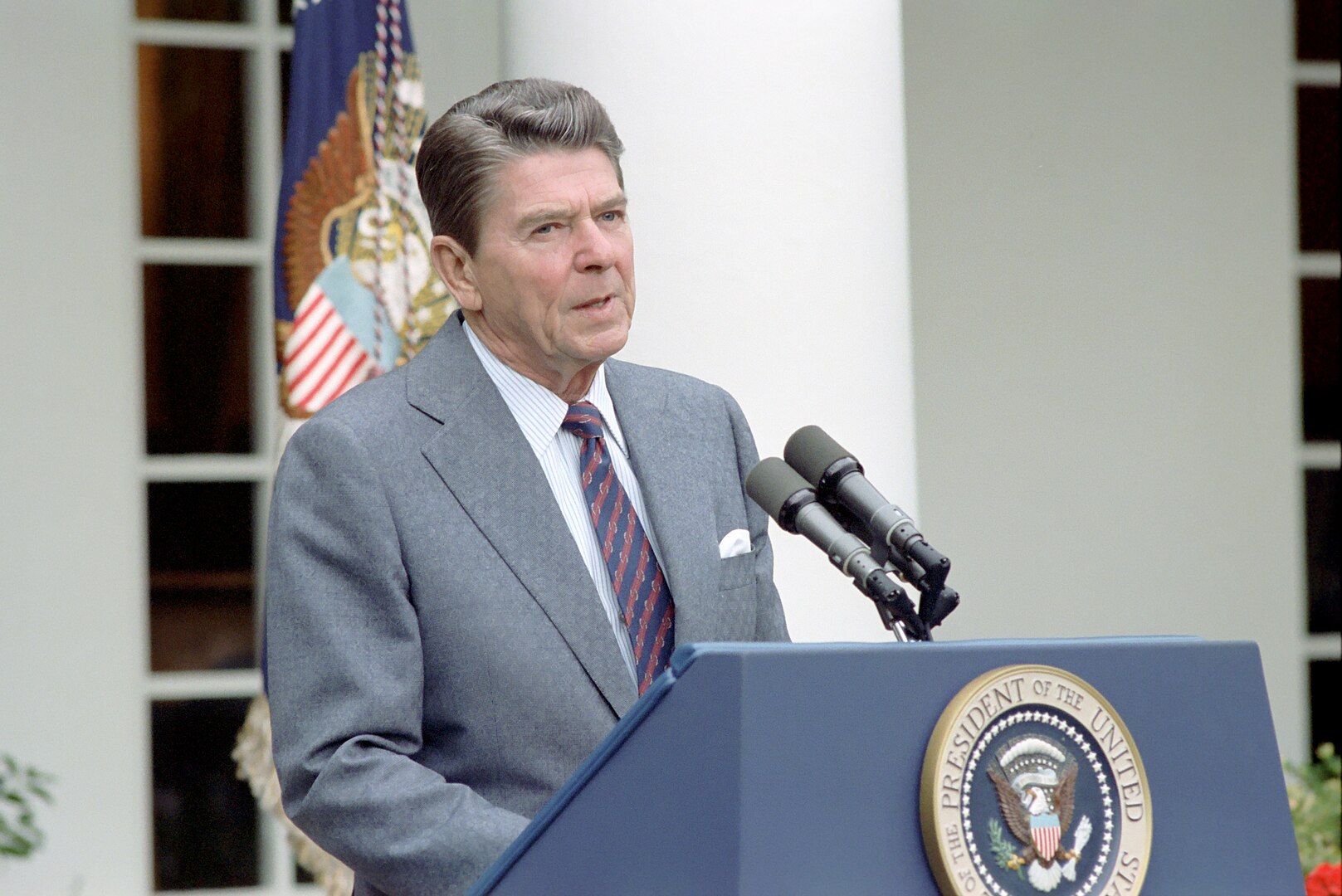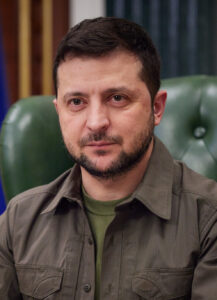 BBC News
BBC NewsBorrowing was £17.4bn last month, the second highest October figure since monthly records began in 1993.

Christopher Jackson
It now a cliche to say that there is something theatrical about politics. The podium, the camera, the carefully measured pause. The cultivated charisma. The tragic flaw. In fact, one might argue that our political stage has always favoured the performer over the policy wonk—those who know not only how to speak, but how to be seen.
So it should not surprise us that, occasionally, the actor steps out of character and into history. And when they do, the lines between performance and power—between role and responsibility—begin to blur in compelling and uncomfortable ways.
Ronald Reagan was once the President of the Screen Actors Guild, a B-movie mainstay, and the affable host of General Electric Theater. He was also the 40th President of the United States, whose tenure reshaped American economics and conservatism for generations. When he walked into the Oval Office in 1981, there were those who laughed. But Reagan—by then already fluent in the rhythms of public imagination—was not there to amuse. He was there to narrate. And, in that narration, to govern.
He brought to the presidency not a detailed legislative background, but something more elusive: presence. A sense of timing. And above all, a belief in narrative. “Morning in America” was not a policy. It was a mood. It was set lighting and optimistic brass. It was cinema in the guise of leadership—and it worked.
But Reagan was not an isolated case. In Italy, the comedian Beppe Grillo founded a political movement from scratch—the Five Star Movement—powered by protest, satire, and social media. In Guatemala, Jimmy Morales, a former comic actor who played a character named “Neto,” was elected president in 2015. He ran on an anti-corruption platform. Ironically, his presidency would later be haunted by the same charges.
And then there is Volodymyr Zelensky.
Few stories better encapsulate the surreality of modern politics than Zelensky’s. A comic actor who once played a fictional president on television, he became—within a matter of years—the actual president of Ukraine. The initial reaction outside Ukraine was bemused indulgence: how quaint, how postmodern. But then came 2022. Russia invaded. And the actor, still in his 40s, stood his ground in Kyiv, refusing evacuation, speaking to parliaments around the world via webcam, dressed in olive green. Suddenly, the comedian became Churchillian. The actor became an avatar of democratic resistance.
There’s a temptation to dismiss these transitions as aberrations—quirks of our distracted, media-saturated age. But perhaps they tell us something deeper about employability in the modern world. Namely, that the skills we once thought belonged only to entertainment—the ability to command attention, to distill complexity into image and story, to perform sincerity—are now central to public life.
Zelensky’s power has never been just rhetorical. It is emotional. At the time of the invasion, he understood that in a moment of violence, the world needed not only facts but feeling. Not only geopolitics but courage made visible. The camera that once filmed his sitcom now transmitted a war president to the world.

And isn’t that what Reagan grasped, too? That politics is not simply a matter of law but of atmosphere? That people don’t vote only with their reason, but with their longing?
This is not to say that acting and governing are the same. They’re not. The dangers of confusing the two are real, and often catastrophic. The stage, after all, contains exits. A bad line is followed by a second take. In governance, there are consequences. Words start wars. Promises shape budgets. Missteps cannot be edited in post.
But perhaps the deeper point is this: the move from acting to politics is not a betrayal of seriousness, but a recognition that seriousness takes many forms. We live in an age where attention is the most precious currency. And those who can hold it—honestly, skilfully, artfully—may be more employable than ever, not in spite of their theatrical background, but because of it.
This is not always comfortable. We expect politicians to emerge from certain pipelines: law schools, think tanks, town halls. When they arrive via the backdoor of celebrity, we feel uneasy. As if the membrane between real and fake had grown too thin.
But maybe this discomfort is useful. It forces us to ask: what do we really want from our leaders? Expertise, yes. But also empathy. Clarity. Presence. And a sense, however faint, of narrative arc.
There are dangers, of course. For every Reagan or Zelensky, there is a populist showman for whom the performance never ends—leaders who govern not through substance but spectacle. The border between authentic communication and dangerous demagoguery is perilously narrow. And yet: the solution is not to sneer at actors who govern, but to demand that all who govern do so with a greater sense of the human drama.
The deeper truth is that we are all performing, in some way. Every interview, every job, every speech. The question isn’t whether you’re acting. It’s whether the act serves something real.
Zelensky’s performance was real. So was Reagan’s, in its way. Both turned skill into meaning. And both remind us that careers, like countries, evolve. The theatre, like the ballot box, is a place where stories are told—and where, occasionally, lives are changed.
For those navigating career change, the parallels are striking. Just as actors have transitioned into politics, so too must many professionals learn to pivot, to adapt, to reframe their skill sets in ways that speak to new audiences and shifting demands. The courage to start again, the confidence to step into a new role—these are not just political virtues, but career essentials.
At Finito, we see every day how individuals can draw on existing talents, often overlooked or underappreciated, and reimagine them for a new stage. Reinvention, after all, is a performance in its own right—equal parts preparation, risk, and belief.
This is where mentorship proves invaluable. To have someone in your corner who understands the arc of transition—who can see both where you’ve come from and where you might go—is often what makes the difference.
Whether it’s a young person stepping into the world of work, or a mid-career professional confronting redundancy or reinvention, the need is the same: guidance that is practical, yes, but also imaginative. At its best, mentorship doesn’t just prepare you for the next role—it helps you own it, rewrite it, even direct it.
When the actor becomes the politician, we are left not with contradiction, but with a kind of clarity: that leadership, like theatre, is a matter of courage, composition, and presence.
And if that’s true, then perhaps the real question is not “Why do actors go into politics?” but rather, “Why don’t more politicians learn to act—with grace, with truth, with something that feels like love—for the people they serve?”